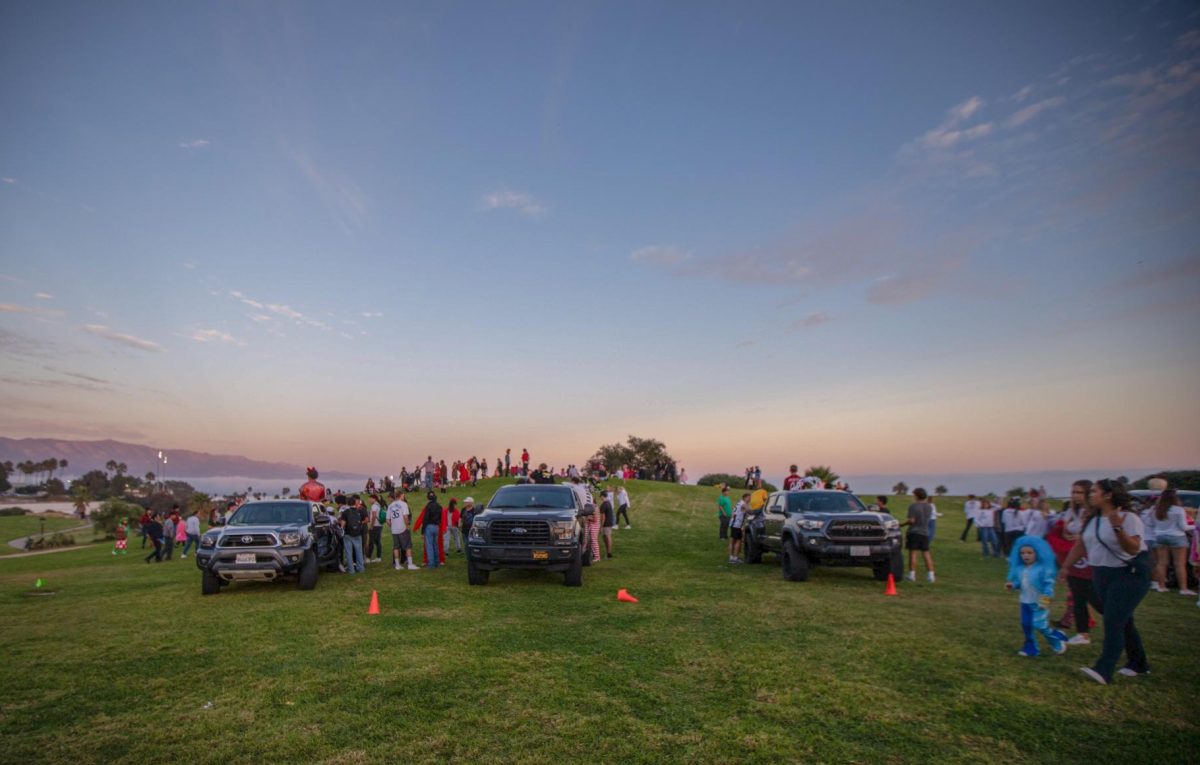On the evening of March 5 in Santa Barbara, an enthusiastic crowd of parents, teachers, and students discovered the truth behind what kids are really eating for lunch at school.
“A school cafeteria has to be the most disturbing place you can go,” said Morgan Spurlock, creator of the documentary “Supersize Me.”
“It’s like walking into a 7-Eleven.”
Spurlock, a filmmaker and author, joined forces with Marion Nestle, writer and food policy expert, at the Marjorie Luke Theater to discuss the problems with school food. Kate Adamick, an attorney, chef, and consultant with the Santa Barbara-based Orfalea Fund, interviewed them.
The speakers addressed government and corporate America and their involvement with the lunch programs in public schools. Government and corporations play a huge role in the health and education of children at schools, they agreed.
Spurlock said it’s unfortunate that the message going out to children is that junk food is more fun than healthy food. When Spurlock visited schools in his film “Supersize Me,” he found that some kids were eating candy and French fries for lunch.
“I have seen Slurpee machines in cafeterias,” Spurlock said. “It’s unbelievable what these kids are eating.”
It’s the big corporations that are so detrimental to the health of children, added Nestle. These corporations will do anything to make products appear to be healthier. For example, the U.S. Department of Agriculture reconsidered taking sodas out from the schools when a corporation added “vitamins” to their drink product.
“Corporations just can’t sell without cutting corners,” Nestle said. “But it’s the consumer who has to see how the system works and do something about it.”
A common misconception is that school budgets can’t afford healthier food. The speakers disagreed and Adamick explained that the budget is not the problem; it’s the way money is being spent.
“The school will get perfectly good chicken and instead of serving it as is, they send it off and spend money to make it into chicken nuggets,” Adamick said. “They are spending money to make it less healthy, and that’s where the budget goes.”
When it comes to issues controlled by government and corporate America, there’s not much the consumer can control. But consumers can control the food their families eat.
“It’s about changing our society,” Spurlock said. “You have to be a role model in the home.”
Spurlock and Nestle agreed that if parents give their kids good foods and explain why it’s good for them, they will eat it.
“It’s a bad idea to give kids choices, unless they are choices between two healthy foods.” Spurlock said.
Both experts advised parents to give the kids healthy foods at home because if it taste good, they’ll eat it.
Spurlock added that society also has a backward concept of the way foods are priced. It blows his mind, he said, that organic food costs several times more as junk food.
“That’s another fault in society,” he said. “The foods that are good for you are the most expensive and it should be the other way around.”
The school systems have shown a major decrease in priority for exercise. Spurlock said that recess is being removed from schools all over the country.
“It’s a problem of overeating and under-exercising in schools.” Spurlock said. “It’s as if they tell the kids ‘hurry to class, but don’t run!'”
Spurlock, Nestle and Adamick encouraged parents and students to “brown bag it,” and maybe the trend will influence some change. They advised parents that if anything at all, parents should make sure they know what their kids are eating.
“You really have to get involved and see what your kids are being fed,” Spurlock said. “Until you check it out, you have no idea what they are eating and the serious health consequences they could be facing.”
-Amy Brisbane is a Journalism 101 student







